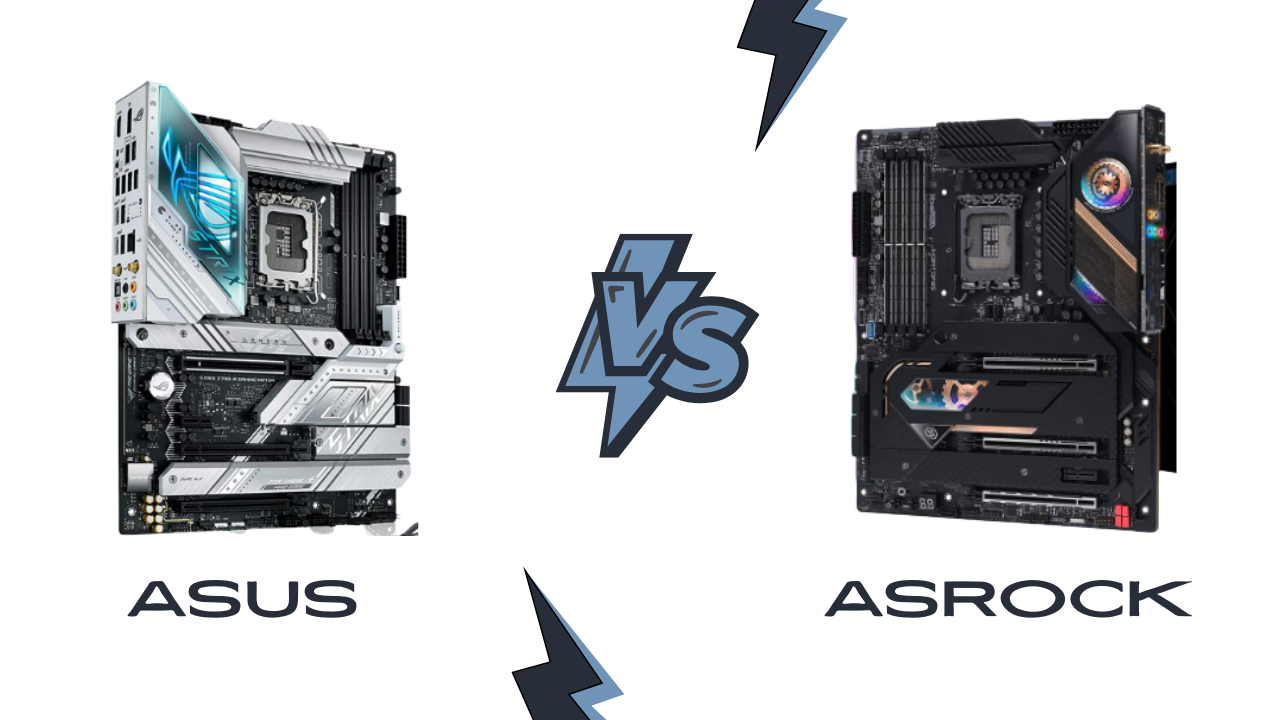
When choosing a motherboard for your PC, there are two major contenders: ASUS and ASRock. While both manufacturers offer excellent products, they each have unique strengths and weaknesses that make them better suited to different uses. In this review, we’ll compare ASUS vs ASRock motherboards to help you decide which is the best for you.
ASUS and ASRock are two of the biggest names in computer hardware, and their motherboards are among the most popular on the market. If you want to build or upgrade a PC, you may wonder which brand is right for you: ASUS vs ASRock motherboard.
Both ASUS and ASRock have been around for over a decade, but ASUS is the more prominent name in the industry, established in 1989. Their motherboards are known for their reliability and quality and are more expensive than ASRock motherboards.
On the other hand, ASRock was founded in 2002 and has since become one of the most popular brands for budget-friendly motherboards. While they offer a range of models with excellent specs and features, they are generally cheaper than ASUS models.
In general, if you’re looking for a reliable, high-performance motherboard that won’t break the bank, then ASRock maybe your brand. On the other hand, if you’re looking for a board that offers excellent performance and reliability at a slightly higher price point, then ASUS might be your best bet.
To know more, let’s dive into the key features and specifications of motherboards. But before that, let’s look at our top picks from both manufacturers!
Also Read: MSI Vs Gigabyte Motherboard
ASUS VS ASRock Motherboard: Key Features
| Features | ASUS Motherboards | ASRock Motherboards |
|---|---|---|
| Memory Support | DDR5, Max memory capacity up to128GB | DDR5, Max memory capacity up to128GB |
| Chipset | Intel Z790, AMD X670 | Intel Z790, AMD X670 |
| OS | Windows® 11 64-bit, Windows® 10 64-bit | Windows® 11 64-bit, Windows® 10 64-bit |
| Over-Clocking | 7800+(OC) MHz | 7400+(OC) MHz |
| Network Connectivity | Wi-Fi 6E, 10GbE LAN chip, 2.5Gbps LAN | Intel® Killer™ 2.5G LAN, Intel® 1G LAN Killer™ 802.11ax Wi-Fi 6E |
| Audio | ROG SupremeFX 7.1 CODEC ALC4082 | Realtek® ALC4082 Audio Codec |
| Connectivity | USB 3.2 Gen 2×2 Type-C, USB 3.2 Gen 2 Type-A, USB 3.2 Gen 1 Type-A, USB 2.0 PCI Express 5.0 x16, PCI Express 4.0 x16, PCI Express 3.0 x16 |
USB 3.2 Gen 2×2 Type-C, USB 3.2 Gen 2 Type-A, USB 3.2 Gen 1 Type-A, USB 2.0 PCI Express 5.0 x16, PCI Express 4.0 x16, PCI Express 3.0 x16 |
| Onboard Graphics | Integrated Graphics Processor | Integrated Graphics Processor |
| Power Design | 24 + 1 Power Stages | 24+1+2 Phases Digital VRM Solution |
| Thermal Solution | Multiple temperature sensors, ROG Water-Cooling Zone, MOS heatsink, M.2 heatsink, FanXpert 4, AIO pump fan | MOS heatsink, M.2 heatsink, XXL Aluminium Alloy Heatsink |
| Other Features | ASUS AI Noise-Cancelling Microphone, Q-Code LED, LiveDash OLED, ASUS Aura Sync, SafeSlot | ASRock Polychrome SYNC, ASRock Super Alloy |
As you can see from the comparison table above, both ASUS and ASRock motherboards offer a variety of specs and features. However, ASUS motherboards are slightly better equipped than ASRock motherboards regarding USB 3.1 Gen 2 ports and Wi-Fi/Bluetooth connectivity.
ASUS VS ASRock Motherboard: Recommendations
ASUS Motherboards
| Design | Model | Retailer |
|---|---|---|
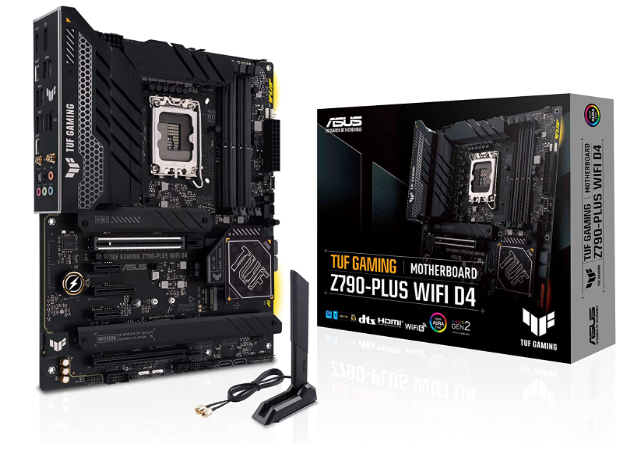 |
ASUS TUF Gaming Z790-Plus WiFi Motherboard | Check Price |
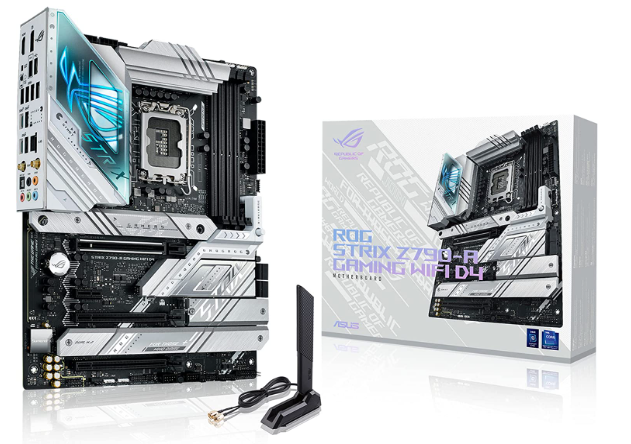 |
ASUS ROG Strix Z790-A Gaming WiFi Motherboard | Check Price |
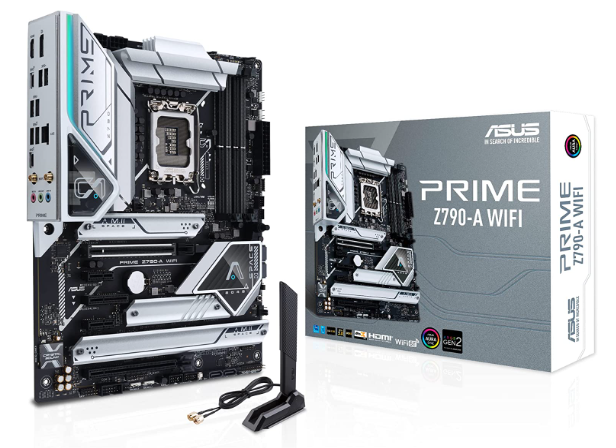 |
ASUS Prime Z790-A WiFi Motherboard | Check Price |
ASRock Motherboards
| Design | Model | Retailer |
|---|---|---|
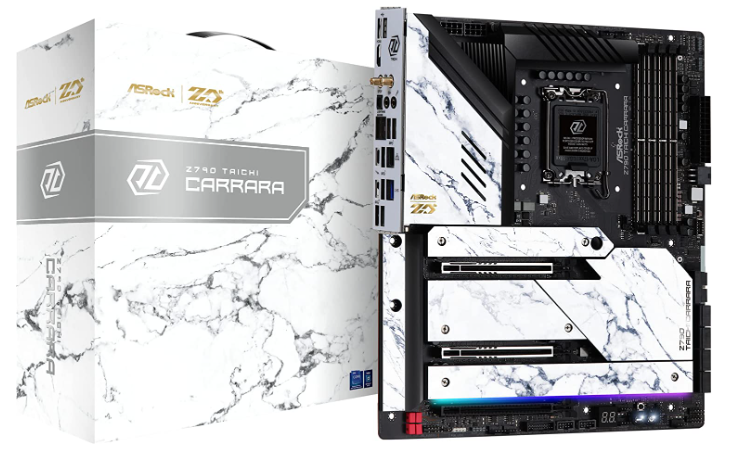 |
ASRock Z790 Taichi Carrara Motherboard | Check Price |
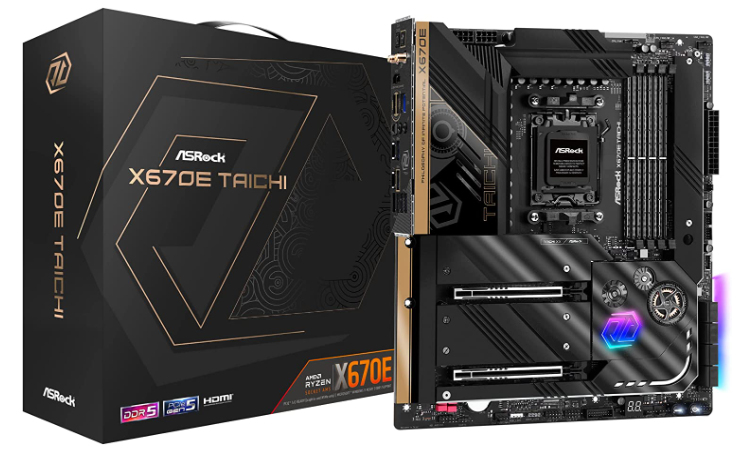 |
ASRock X670E Taichi Motherboard | Check Price |
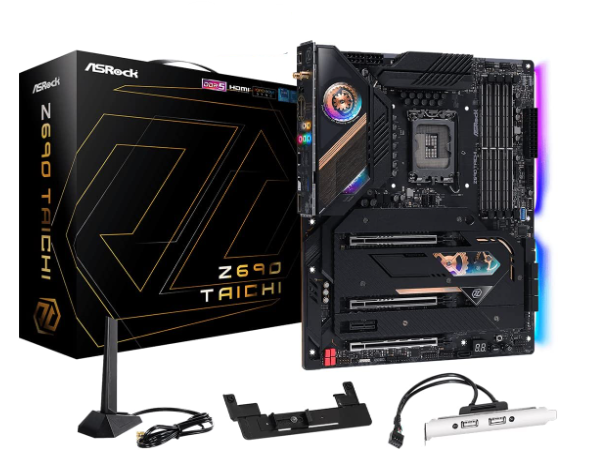 |
ASROCK Z690 Taichi Motherboard | Check Price |
ASUS VS ASRock Motherboard: Detailed Comparison
Specifications
ASUS vs ASRock motherboards are from well-known brands but have different specs and features that make them better suited for specific applications. To help you decide which is right, we’ll look closer at their specs and features and compare them side-by-side.
| ASUS motherboards feature a variety of specs and features, including support for up to 64GB of RAM, up to 10 SATA ports, multiple PCIe slots, and USB 3.1 Gen 2 Type-A and Type-C ports. Some of the higher-end models also include built-in Wi-Fi and Bluetooth connectivity. | ASRock motherboards also offer a range of specs and features. These include support for up to 64GB of RAM, 8 SATA ports, multiple PCIe slots, and USB 3.1 Gen 1 Type-A and Type-C ports. |
| ASUS offers motherboards in various form factors, including ATX, microATX, mini-ITX, and more. | ASRock also offers motherboards in several form factors, such as ATX, microATX, and mini-ITX. |
Performance
Regarding performance, ASUS vs ASRock motherboard offers impressive specs.
| ASUS motherboards are known for their quality components and reliable operation. They feature high-end chipsets such as the Intel Z97 and Intel H170. These chipsets provide a fast and efficient data transfer rate, allowing you to multitask efficiently. | ASRock motherboards also come with powerful chipsets, including the Intel Z170, Intel H110, and Intel B150. These chipsets provide excellent support for graphics cards and other hardware components. |
| ASUS motherboards support multiple graphics cards, allowing you to add more power to your gaming system. | ASRock motherboards have robust VRMs that allow for high overclocking potential. This makes them ideal for gamers who want to get the most out of their system. |
Overall, both ASUS vs ASRock motherboards can provide excellent performance. However, if you’re looking for maximum overclocking potential, then ASRock motherboards may be the better choice. On the other hand, if you’re looking for reliable operation and a wide range of features, then ASUS motherboards may be the better choice for you.
Connectivity
When comparing ASUS vs ASRock motherboards, connectivity is a crucial factor to consider. Both brands offer a wide range of connection options.
| ASUS motherboards support USB 2.0, USB 3.0, Thunderbolt 3, HDMI, and more. They also come with several expansion slots such as PCI-E x16, M.2 and SATA III. | ASRock motherboards also offer multiple connection options, including USB 2.0, USB 3.0, HDMI, SATA III and M.2. Both brands provide Wi-Fi and Bluetooth support for wireless connections. |
However, ASUS motherboards are better equipped for gaming as they have better audio capabilities and support for multiple GPU configurations for ultimate gaming performance.
Audio
When it comes to audio quality, ASUS vs ASRock motherboard both offer a range of audio options.
| The ASUS motherboards typically come with SupremeFX S1220A, an 8-channel HD Audio CODEC that supports up to 8 channels for surround sound. It also has an isolated design for reduced interference and improved audio clarity. | ASRock motherboards come with a Realtek ALC1220 audio codec capable of producing 7.1-channel surround sound with high fidelity. |
Both ASUS and ASRock motherboards provide comprehensive audio options, but ASUS might be slightly better in this area because of their isolated design, which reduces interference. However, ASRock motherboards still have excellent audio quality and are more than sufficient for most users.
Ultimately, when choosing between ASUS vs ASRock motherboards, the decision depends on what you need out of your audio setup and whether you’re willing to pay the extra cost for the ASUS option.
Pricing
When choosing a motherboard, it’s important to consider the cost. ASUS vs ASRock motherboards have various models with different price points, making it easy to find something that fits your budget.
| ASUS offers an extensive selection of motherboards, ranging from high-end enthusiast boards to more budget-friendly options. Some of their higher-end boards can cost upwards of $900 USD, while the lower-end models typically cost around $20-600. | ASRock also has many motherboards, ranging from budget-friendly options to pricier enthusiast models. They offer many of the same features as ASUS, but their boards are slightly cheaper on average. For example, one of their high-end boards costs up to $1000 USD, while their low-end models cost approximately $100-500 USD. |
Overall, both ASUS and ASRock offer excellent motherboards at various price points. Depending on your needs and budget, either could be a good choice for your new ASUS vs ASRock motherboard.
Pros Ans Cons
ASUS Vs ASRock Motherboard: ASUS Motherboards
ASUS Vs ASRock Motherboard: ASRock Motherboards
Which Is Better For You?
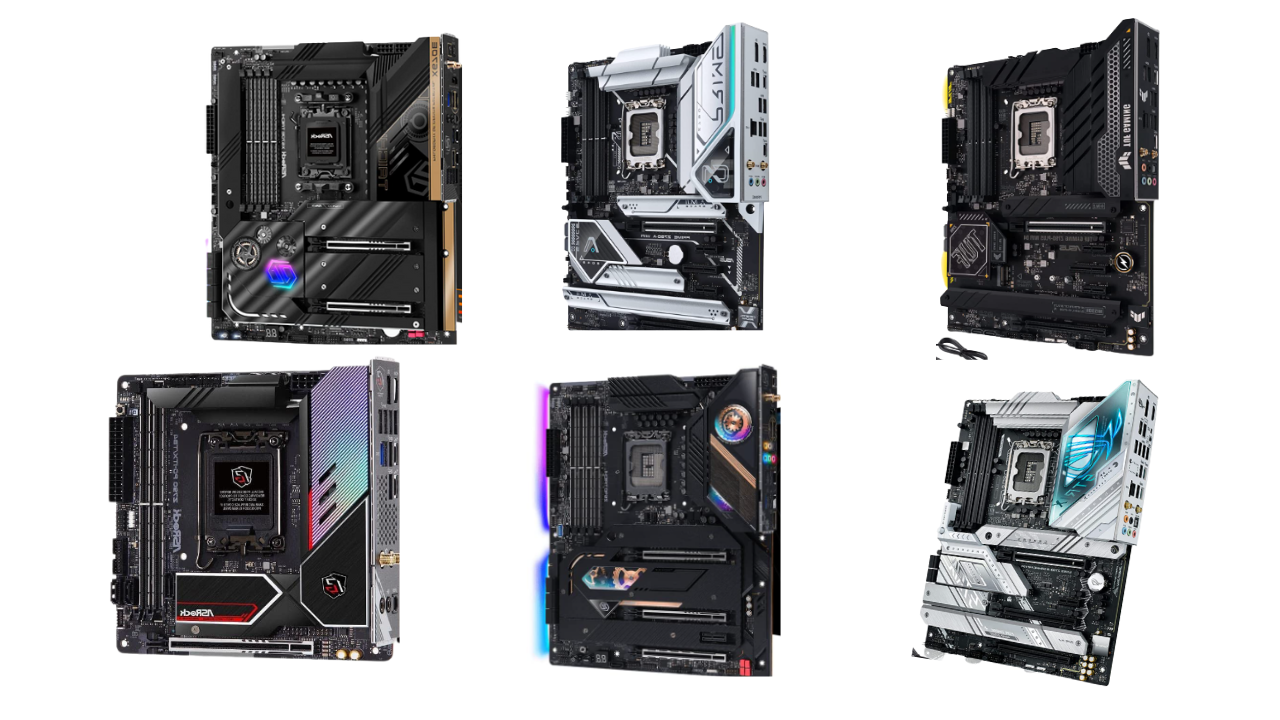
When it comes to choosing between an ASUS vs ASRock motherboard, there is no one-size-fits-all answer. Ultimately, the decision depends on your own needs and preferences. Both brands offer reliable products that are designed to suit different purposes.
ASUS motherboards are generally regarded as being of higher quality, and their products tend to have a more robust design, advanced features, and better overall performance. In addition, ASUS motherboards often come with better warranties and technical support, making them a good choice for power users.
On the other hand, ASRock motherboards are more affordable, making them an attractive option for budget-conscious shoppers. ASRock motherboards also offer good performance and great value for money, so they’re ideal for casual users who don’t need advanced features or superior specs.
In conclusion, when deciding between ASUS vs ASRock motherboards, it’s crucial to think about what you’ll be using the motherboard for. If you’re looking for a feature-rich product with superior performance, then ASUS is the way to go. However, if you’re on a budget or don’t need top-of-the-line features, then ASRock is an excellent choice.
Conclusion
When it comes to choosing the correct motherboard for your computer, the ASUS vs ASRock motherboard debate is one that often comes up. Both brands offer a wide range of features and specs that can meet the needs of any computer user.
However, while ASRock tends to have a lower price point and a more robust selection of audio solutions, ASUS offers more connectivity options and better performance.
Ultimately, it all comes down to personal preference for which brand is best for you. Regarding ASUS vs ASRock motherboards, the best advice is to read reviews, compare prices, and test the product before purchasing.